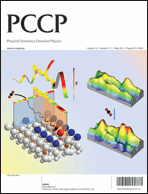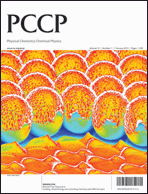 Physical Chemistry Chemical Physics (PCCP) publishes high impact Communications on the most important new research.
Physical Chemistry Chemical Physics (PCCP) publishes high impact Communications on the most important new research.
We provide our authors with a fast publication service: the average time from receipt to first publication in March 2013 was just 36 days for Communication Articles. Now PCCP’s Accepted Manuscript service means your research is available, in citable form, on average within one day of acceptance.
Why publish in PCCP?
• Committed to publishing the best research across physical chemistry, chemical physics and biophysical chemistry
• Large community-spanning international readership
• Very efficient, rigorous and fair peer review procedure
• High impact factor: 3.57
• No author page charges or colour charges
• Society publishing, and fully open-access compatible
Submit your best research today and see your Communication published on average five weeks after submission.
Below is a collection of our very recent high impact Communications, with a selection available to read for free for a limited period:
FREE: Screened-exchange density functionals with broad accuracy for chemistry and solid-state physics
Roberto Peverati and Donald G. Truhlar
DOI: 10.1039/C2CP42576A
FREE: Integrated microfluidic test-bed for energy conversion devices
Rachel A Segalman, Miguel A. Modestino, Joel W. Ager III, Sophia Haussener, Rafael Gomez-Sjoberg and Camilo Diaz-Botia
DOI: 10.1039/C3CP51302E
FREE: Characterization of an activated iridium water splitting catalyst using infrared photodissociation of H2 tagged ions
Etienne Garand, Joseph A. Fournier, Michael Z. Kamrath, Nathan D. Schley, Robert H. Crabtree and Mark A. Johnson
DOI: 10.1039/C2CP41490B
FREE: Bioelectrocatalytic oxidation of glucose with antibiotic channel-containing liposomes
Shuji Fujita, Ryuhei Matsumoto, Kenichi Ogawa, Hideki Sakai, Akihiro Maesaka, Yuichi Tokita, Seiya Tsujimura, Osamu Shirai and Kenji Kano
DOI: 10.1039/C3CP43998D
FREE: Synthesis, Characterization and Organic Field Effect Transistor Performance of Diketopyrrolopyrrole- Fluorenone Copolymer
Prashant Murlidhar Sonar, Taejun Ha and Ananth Dodabalapur
DOI: 10.1039/C3CP50286D
FREE: Surface oxidation of gold nanoparticles supported on a glassy carbon electrode in sulphuric acid medium: contrasts with the behaviour of ‘macro’ gold
Ying Wang, Eduardo Laborda, Alison Crossley and Richard G. Compton
DOI: 10.1039/C3CP44615H
FREE: Supramolecular H-bonded porous networks at surfaces: exploiting primary and secondary interactions in a bi-component melamine–xanthine system
Artur Ciesielski, Sébastien Haar, Gábor Paragi, Zoltán Kupihár, Zoltán Kele, Stefano Masiero, Célia Fonseca Guerra, F. Matthias Bickelhaupt, Gian Piero Spada, Lajos Kovács and Paolo Samorì
DOI: 10.1039/C3CP50891A
The influence of thermal degradation on the electrodeposition of aluminium from an air- and water-stable ionic liquid
Jean-Pierre Marcel Veder, Thomas Ruether, Mike Horne, Alan M Bond and Theo Rodopoulos
DOI: 10.1039/C3CP50690H
Accurate quantum chemical energies for tetrapeptide conformations: why MP2 data with an insufficient basis set should be handled with caution
Lars Goerigk, Amir Karton, Jan M. L. Martin and Leo Radom
DOI: 10.1039/C3CP00057E
Operando XAFS study of catalytic NO reduction over Cu/CeO2: the effect of copper–ceria interaction under periodic operation
Yasutaka Nagai, Kazuhiko Dohmae, Yusaku F. Nishimura, Hitoshi Kato, Hirohito Hirata and Naoki Takahashi
DOI: 10.1039/C3CP44316G
Other origins for the fluorescence modulation of single dye molecules in open-circuit and short-circuit devices
Jefri S. Teguh, Michael Kurniawan, Xiangyang Wu, Tze Chien Sum and Edwin K. L. Yeow
DOI: 10.1039/C2CP43284F
Roughening of Pt nanoparticles induced by surface-oxide formation
Tianwei Zhu, Emiel J. M. Hensen, Rutger A. van Santen, Na Tian, Shi-Gang Sun, Payam Kaghazchi and Timo Jacob
DOI: 10.1039/C2CP44252C
ZnO nanoparticle based highly efficient CdS/CdSe quantum dot-sensitized solar cells
Chunhui Li, Qingbo Meng and Bo Brummerstedt Iversen
DOI: 10.1039/C3CP50365H
Natural mineral tetrahedrite as a direct source of thermoelectric materials
Xu Lu and Donald T. Morelli
DOI: 10.1039/C3CP50920F
Attenuated total reflectance infrared spectroelectrochemistry at a carbon particle electrode; unmediated redox control of a [NiFe]-hydrogenase solution
Adam J. Healy, Philip A. Ash, Oliver Lenz and Kylie A. Vincent
DOI: 10.1039/C3CP00119A
Using waste Li ion batteries as cathodes in rechargeable Li–liquid batteries
Jinyoung Chun, Moonsik Chung, Jinwoo Lee and Youngsik Kim
DOI: 10.1039/C3CP00006K
Origin of electrolyte-dopant dependent sulfur poisoning of SOFC anodes
ZhenHua Zeng, Mårten E. Björketun, Sune Ebbesen, Mogens B. Mogensen and Jan Rossmeisl
DOI: 10.1039/C3CP51099A
Molecular-level characterization of the structure and the surface chemistry of periodic mesoporous organosilicates using DNP-surface enhanced NMR spectroscopy
Wolfram R. Grüning, Aaron J. Rossini, Alexandre Zagdoun, David Gajan, Anne Lesage, Lyndon Emsley and Christophe Copéret
DOI: 10.1039/C3CP00026E
Critical solution behavior of poly(N-isopropyl acrylamide) in ionic liquid–water mixtures
Purnendu K. Nayak, Adam P. Hathorne and Harry Bermudez
DOI: 10.1039/C2CP44205A
Resonance Raman studies of excited state structural displacements of conjugated polymers in donor/acceptor charge transfer complexes
Adam J. Wise and John K. Grey
DOI: 10.1039/C2CP41748K
The bulk and the gas phase of 1-ethyl-3-methylimidazolium ethylsulfate: dispersion interaction makes the difference
Friedrich Malberg, Alfonso S. Pensado and Barbara Kirchner
DOI: 10.1039/C2CP41878A
Resonant X-ray emission spectroscopy reveals d–d ligand-field states involved in the self-assembly of a square-planar platinum complex
Claudio Garino, Erik Gallo, Nikolay Smolentsev, Pieter Glatzel, Roberto Gobetto, Carlo Lamberti, Peter J. Sadler and Luca Salassa
DOI: 10.1039/C2CP42451G
Well-defined lipid interfaces for protein adsorption studies
Cristina Satriano, Sofia Svedhem and Bengt Kasemo
DOI: 10.1039/C2CP43254D
Charge localization increases chemical expansion in cerium-based oxides
Dario Marrocchelli, Sean R. Bishop, Harry L. Tuller, Graeme W. Watson and Bilge Yildiz
DOI: 10.1039/C2CP40754J
 PCCP Deputy Chair David Nesbitt has been elected as a 2013 member of theAmerican Academy of Arts and Sciences.
PCCP Deputy Chair David Nesbitt has been elected as a 2013 member of theAmerican Academy of Arts and Sciences.










 The “New Frontiers of Hydrocarbons” award in the Downstream category has been assigned to
The “New Frontiers of Hydrocarbons” award in the Downstream category has been assigned to 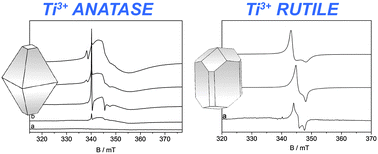
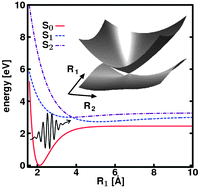
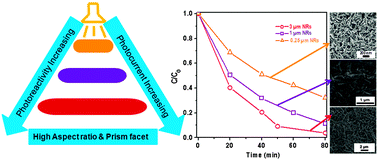
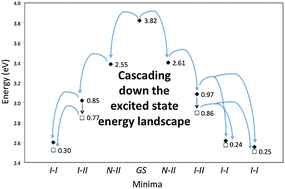
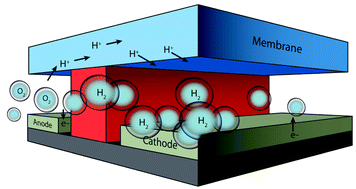 Segalman, Ager and co-authors present a versatile microfluidic test-bed for testing of integrated catalysis and mass transport components for energy conversion via water electrolysis in their recent PCCP Communication.
Segalman, Ager and co-authors present a versatile microfluidic test-bed for testing of integrated catalysis and mass transport components for energy conversion via water electrolysis in their recent PCCP Communication.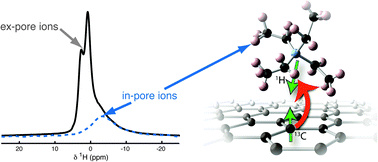 Developing alternative energy storage devices, such as supercapacitors, is of rising importance when facing today’s challenges of climate change and fossil fuel depletion. Supercapacitors typically employ porous carbon electrodes as they have large surface areas for ion electrosorption, good electronic conductivities and relatively low production cost. The design and improvement of supercapacitors is only possible with a detailed understanding of ion adsorption within porous carbon.
Developing alternative energy storage devices, such as supercapacitors, is of rising importance when facing today’s challenges of climate change and fossil fuel depletion. Supercapacitors typically employ porous carbon electrodes as they have large surface areas for ion electrosorption, good electronic conductivities and relatively low production cost. The design and improvement of supercapacitors is only possible with a detailed understanding of ion adsorption within porous carbon.
